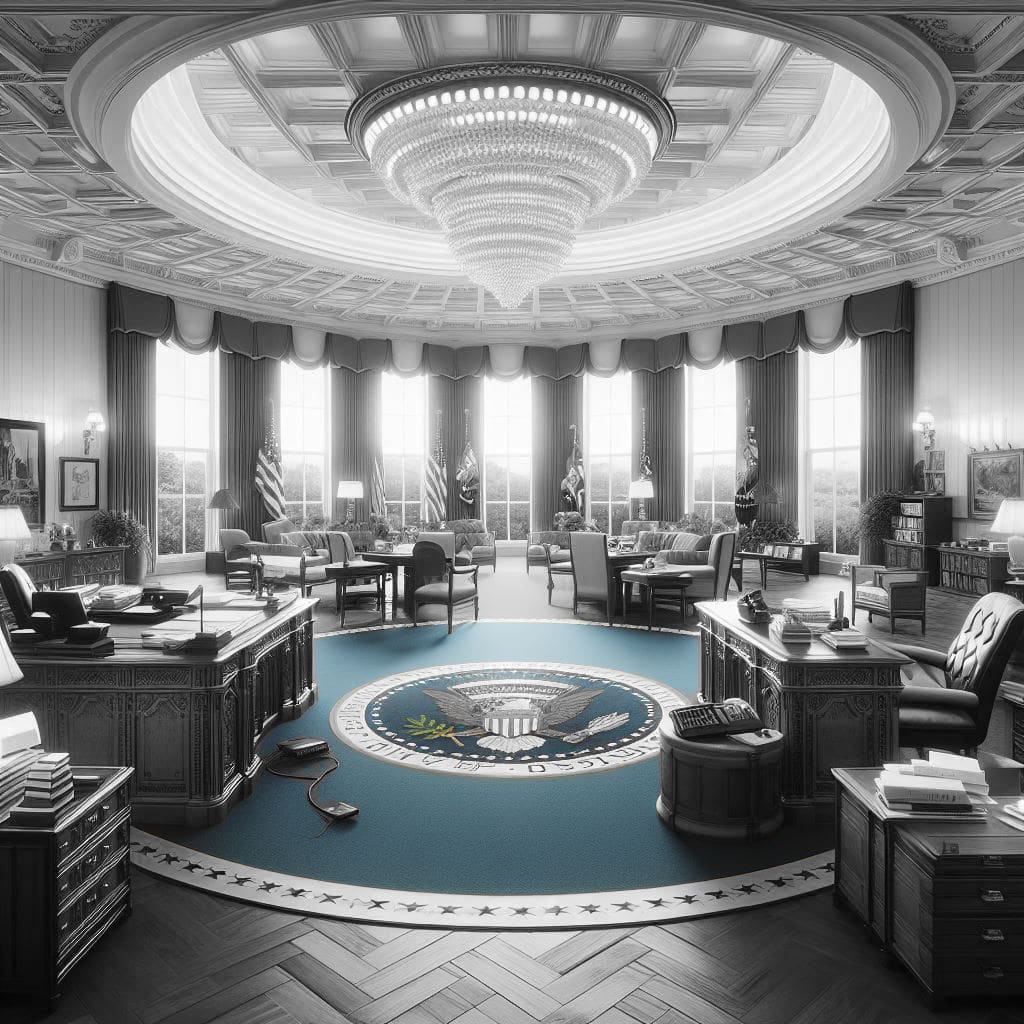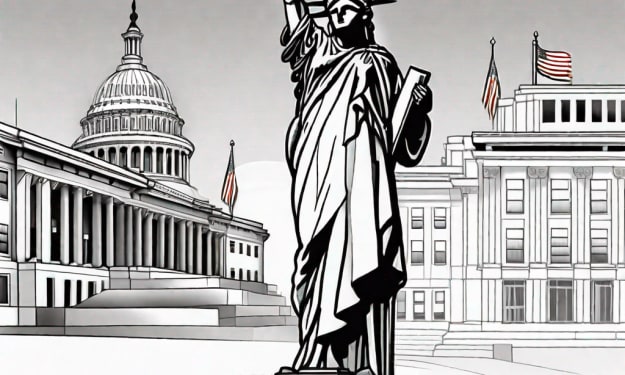President Obama: Legacy of Change and Hope
Democracy Needs Protection

Like many others, I admired President Obama's journey to the White House. I recently finished reading his book cover to cover and was truly impressed by his captivating storytelling and ability to engage readers with personal stories. President Obama holds a place in my heart much like the esteemed John Lewis, Dr. Martin Luther King Jr., and the often misunderstood Malcolm X. Their stories have motivated me to navigate through a world filled with criticism and false narratives.
Barack Obama's rise to the presidency symbolizes the power of democracy, signaling a shift in political dynamics that continues to make history and reshape our nation's political landscape. Reflecting on Obama's life influences, path to presidency, key policies, political impact and enduring legacy enables us to understand the influence he had and why he is regarded as a hero and champion of democracy. His diverse background played a role in shaping his perspectives and identity. Being raised by an African father and American mother exposed him to a rich tapestry of cultures, languages, and traditions.
Obama's diverse upbringing shaped his perspective, allowing him to bridge divides and build personal connections between communities. His multicultural background, like a mosaic, promoted inclusivity and tolerance, forming the foundation of his beliefs. Whenever he addressed the public, Obama shared a blend of hope and sincerity, inspiring me to embrace his vision for a brighter future for our nation's youth. His empathy towards people from backgrounds fostered unity among Americans.
In a nation that celebrates diversity and acknowledges its potential, Obama's heritage and his ability to truly listen to community members reflect the essence of America as a melting pot. He emphasized that the strength of the United States lies in its richness and diversity, highlighting the value of different backgrounds and beliefs coming together in harmony. This realization reignited a commitment to promoting diversity and advocating for rights for all citizens, showcasing the positive impact of inclusivity, in contrast to negative narratives often propagated by certain factions.
Regarding Education and Early Political Journey
During his student years, Obama excelled academically. Demonstrated strong leadership skills.
He studied at universities like Columbia University and Harvard Law School, where he honed his intellect and cultivated his dedication to public service. Taking inspiration from the civil rights activists who tirelessly fought for equality, Obama embarked on a journey that eventually led him to the presidency and the White House. Despite facing accusations from certain factions, an African American individual was elected as President of the United States. Alongside Vice President Kamala Harris, our nation's path showcases not only its potential but also proves that, despite divisive rhetoric, America's diverse culture is enduring and flourishing. During his time at Columbia University, Obama engaged in a range of academic pursuits. He delved into fields such as science, economics, and international relations, expanding his knowledge of intricacies. This interdisciplinary approach equipped him with a nuanced perspective on issues that influenced his foreign policy decisions during his presidency. I remember when President Obama visited Germany. The large crowds gathered to listen to his speech made me realize that the world is open to embracing individuals of race; however, there are those who resist any progress in elevating the status of an African American leader.
Furthermore, Obama's early forays into politics were marked by a commitment to grassroots organizing and empowering communities, such as his hands on involvement in Southside Chicago. He worked as a community organizer in Chicago, where he directly observed the hardships faced by marginalized groups. This direct exposure inspired him to strive for changes and address inequalities. Through his grassroots work, Obama learned the importance of listening to people. Giving them a platform to voice their concerns.
Obama's Path to the Presidency
The 2008 election was a moment in history filled with optimism and anticipation for change. Obama's message of hope and unity resonated deeply with the public. He embodied the aspirations of millions presenting a vision for a nation.
The Impact of the 2008 Election
Obama's victory as the 44th President of the United States shattered barriers and defied conventions. It marked a milestone as an African American assumed office in the nation. This groundbreaking achievement inspired individuals from backgrounds to believe in their ability to overcome obstacles and strive for excellence. Obama's win signaled progress in relations and ushered in a new era of politics centered on optimism and transformation. However, his election also spurred opposition rooted in anti democratic principles.
The emergence of the "Tea Party" and the "Make America Great Again" movement led to the rise of right wing figures within the GOP Republican Party. Obama's presidency sparked enthusiasm among voters, minorities and those previously marginalized. His inauguration symbolized a shift towards unity and diversity on a scale. I have memories of the excitement in Washington, D.C. During that time, as well as the sense of hope that permeated through Northern Virginia, Maryland, and D.C. commonly known as the "DMV." I was present during those moments, having lived and worked in Northern Virginia after serving in the U.S. Air Force.
Obama's campaign strategy centered on employing media to engage with voters who felt disenfranchised. By uniting volunteers and supporters, he championed a message of change and inclusivity for all Americans. Like a conductor leading an orchestra, Obama resonated with people's aspirations and aspirations throughout his campaign.
Ironically, his grassroots campaign attracted volunteers from backgrounds, reflecting a desire for inclusivity and recognition among a growing population. Obama's message of unity resonated not in the United States but also globally, showcasing his ability to bring people together and pursue common goals. The 2008 election symbolized more than one individual's success; it represented progress towards equality, justice, and opportunity for all. The recent dismantling of the Diversity Office across government reflects an attempt to undermine the strides made during the Obama administration.
I find it disheartening when critics downplay Obama's accomplishments, especially regarding minority issues. If his efforts were insignificant, why is there such an effort by the GOP to dismantle vital initiatives like the Affordable Care Act? Despite facing opposition from a highly partisan Congress, President Obama worked diligently to enact meaningful policies that shaped the country's trajectory during his presidency.
Throughout his tenure as President, President Obama tackled a range of issues from healthcare reform to economic recovery significantly impacting the nation's social and economic landscape. His focus on stabilizing the banking sector was driven by a perspective on the value of the U.S. Currency, rather than favoring the banking industry, often criticized as "greedy." Obama faced addressing the aftermath of the economic downturn inherited from his predecessor, George Bush, which involved navigating through both support and opposition in his efforts to resolve the financial crisis.
Healthcare Reform; The Affordable Care Act
One achievement of Obama's presidency was the successful passage of the Affordable Care Act, commonly referred to as Obamacare. This groundbreaking legislation aimed to improve healthcare accessibility and reduce rates in America. By combining private initiatives, it aimed to create a more fair healthcare system that ensured every citizen had access to coverage. Data shows that millions of Americans got insurance under this reform, highlighting its significant impact. Additionally, key benefits introduced by the Affordable Care Act included services like preventive care, maternity care, and mental health services expanding coverage for many previously underserved individuals. The emphasis on healthcare played a crucial role in addressing critical issues such as African American maternal care disparities currently facing significant challenges.
The law also contained provisions to protect consumers from practices by insurance companies like refusing coverage based on pre-existing conditions and ensuring fair treatment for all Americans seeking medical care. So why is the GOP so eager to dismantle this government-sponsored program? Why wouldn't the leading nation in the world support accessible healthcare? Could it be driven by greed"?
Economic Policies and the Recovery Act
When Obama took office, he inherited an economy severely affected by the crisis. He swiftly implemented strategies, such as the American Recovery and Reinvestment Act, to stimulate growth and create jobs. These efforts prevented a collapse. Laid the groundwork for long-term economic recovery. Data shows a decline in unemployment rates and a revitalization of industries highlighting the success of Obama's actions. Besides the Recovery Act President Obama's administration introduced measures to stabilize the housing market aid businesses. Invest in energy projects. These initiatives not bolstered growth but also established a foundation for a stronger and more sustainable economy going forward.
Obama's Influence on American Politics
Obama's presidency left a lasting impact on America's landscape. His visionary leadership and ability to garner support reshaped the realm of politics.
Barack Obama's time as President left a lasting impact on U.S. History shaping dynamics and bringing about change. His presidency was characterized by optimism, progressiveness, and a message of unity that resonated with the people and inspired a new generation of leaders.
During his tenure, Obama's focus on justice sparked important conversations about inequality and systemic racism, raising awareness about social issues. His leadership symbolized progress towards equality and hope for marginalized communities, breaking barriers and challenging rooted biases. The emphasis on diversity and inclusivity in his administration set a standard for representation in politics.
Furthermore, Obama's presidency fueled movements nationwide by championing values such as justice, equality, and environmental activism. This dedication to ideals inspired calls for change and advocacy, for policies that prioritize the wellbeing of all citizens.
The impact of this shift in awareness continues to shape the landscape, influencing elections and governmental decisions. Progressive Democrats in Congress still uphold many of his ideals to ensure care and equality for all Americans regardless of their race, creed, gender, or religious background. However, this progressive stance unsettles wing activists who criticize the government excessively and wrongly label the welfare class as lazy, including immigrants. Conversely, many Democrat progressives argue it is the racist policies that hinder upward mobility from poverty. A view sharply opposed by many GOP and ultra-right wing supporters. By keeping the masses trapped in circumstances, the uber wealthy maintain their power to influence the government's legal system to suit their needs and perpetuate disenfranchisement and division within disadvantaged communities.
During Obama's presidency, significant issues such as healthcare reform, LGBTQ rights, and income inequality emerged as points for discussion sparking debates on how the government should address social and economic challenges. The Obama administration witnessed a surge in movements and community engagement centered on safeguarding liberties and promoting economic fairness. This wave of activism laid the groundwork for movements advocating for a just and sustainable society.
Barack Obama's Impactful Presidency
As Barack Obama's time in office drew to a close, his leadership influenced both the political landscape and society. I will always recall his qualities, such as his diplomatic skills, particularly in international affairs and on the world stage. He made efforts to mend relations with Cuba, brokered the Iran agreement and supervised the successful mission that led to the demise of Osama bin Laden. Obama's leadership approach was marked by his capacity to motivate and bring together individuals from backgrounds. He was renowned for his speeches, compassion, and dedication to social equity. His influence on politics and society remains tangible, and his legacy will endure for generations to come.
About the Creator
Wayne Ince
A military veteran that loves to read and write stories and poetry about mental health, love, and horror, and diversity topics. Boring on the surface, but I hope you enjoy my work and discover something more underneath the surface.





Comments
There are no comments for this story
Be the first to respond and start the conversation.